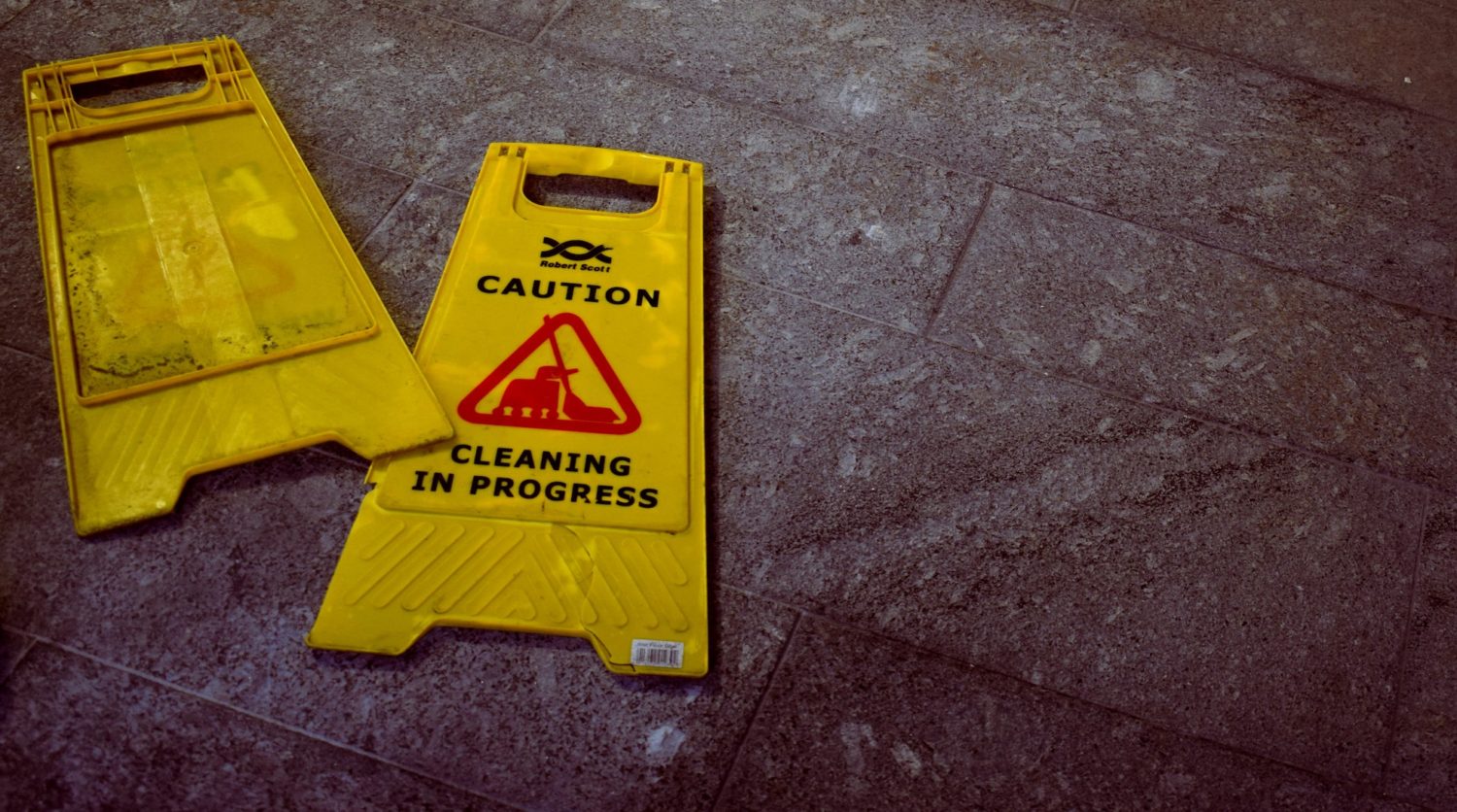A clean break
Despite being so vital to our safety through this pandemic, cleaners are isolated, undervalued and working in dangerous conditions. Jo McBride and Miguel Martínez Lucio consider what must be done
There are anything between a million and a million and a half people working as paid cleaners in the UK. Their work has been essential during the pandemic. Throughout each wave, they have deep cleaned communal spaces, hospitals and schools; working, not safely from home, but ‘out in public’ during a global health crisis.
And yet a stigma remains around cleaning: it is often viewed as ‘unskilled’ and ‘dirty’ labour and its workers ‘unimportant’. And as with other forms of low-paid work, it is undervalued – especially as cleaning jobs have become more uncertain, insecure, and populated by a marginalised workforce.
There have also been major challenges accentuating the already difficult aspects of cleaning work. Cleaners are now increasingly working alone, often in isolated workplaces or out in public, using a wide range of hazardous chemical products, and dealing with often violent and challenging situations.
During the early stages of the pandemic there was a sudden – but in retrospect brief – appreciation of various undervalued, low-paid jobs, which was expressed in the national ‘clap for carers’ campaign. It suggested there was mutual agreement on the actual value certain jobs have to society, and led to a growing interest from the public in the need to reward and protect such key workers in a way that had not been the case for some time.
During this period, the Conservatives were placed under pressure to respond to unfair working conditions by acknowledging – and indeed – rewarding cleaners along with other key workers. This pressure grew, especially as the government had argued that Brexit and other national developments would lead to higher wages and better working conditions.
The Conservatives responded to these demands by providing ‘formal guidelines’ as to how key workers ‘should be protected’ in their workplaces. Much of this was written in the ‘spirit’ of the time, citing a mutual appreciation for key workers and adopting a nationalist tone around solidarity and value: “We are all in this together” and “It is all in the interest of the national good”. At the heart of these guidelines was a populist sentiment that focused on ‘duty’.
Yet, these guidelines essentially transferred the responsibility to protect cleaners – during the danger and uncertainty of a pandemic – to the cleaners and general workforce themselves, with the government emphasising self-regulation and advancing rhetoric of individual action to limit their responsibility.
This is nothing new.
The cleaning profession has become more individualised and precarious in nature in recent years, with growing levels of isolation and less ability to train new cohorts of cleaners.
And this is in great part due to the impact of austerity, where we have seen health and safety enforcement decline, the collective voice of cleaners increasingly marginalised politically, and decisions on operational issues having to be taken individually on a day-by-day basis in the face of declining management support.
Austerity has thus led to new workplace cultures where the expansion of tasks and responsibilities have not been paralleled by greater attention to working conditions and fair working practices.
Pre-Covid, we interviewed cleaners working across different public sector organisations to learn about their experiences. Many had seen a move from team working to working more in isolation due to job cuts and less or unstable supervision. Some workers did not see any other colleagues or supervisors in their entire working day. Often, they were left to decide what they felt was a work priority.
Clear, then, is that cleaners are taking on more of a decision-making role. This sense of increasing discretion surely undermines the use of the term ‘unskilled’.
Due to the growing isolation, many cleaners felt they were also at greater risk in terms of danger, fear, and violent threats. Cleaners working in public spaces such as litter pickers, refuse collectors and street cleaning operatives explained how levels of verbal and physical abuse were significant.
There have been a range of campaigns in the past few decades raising the plight of cleaners. Many of these have been through the courts to establish demands for fairer employment practices. Despite such campaigns, normally led by new forms of independent trade unions or networks within established trade unions, this sector of employment remains increasingly fragmented.
It has been suggested by Labour that we need a new deal with a fresh approach to fairness at work. But these approaches are often individualised and centre around questions of minimum working conditions and pay.
Yet the fundamental changes that austerity has brought to these workers’ lives have rarely been challenged.
Many have suggested we look into amending labour legislation around rights at work, especially given that so much energy is expended in long-running court cases, which are, in effect, fighting for basic employment rights. Such cases can be draining for workers and their trade unions, hampering their efforts to pressure employers into systematically enhancing working conditions.
We need to look more widely then – not just at ‘individual’ or ‘employee’ responsibility, but at democracy at work and trade union rights. We should put collective voice and the extension of trade union roles at the heart of the cleaning sector, alongside other similar sectors.
Developing worker representation and deepening trade union recognition rights – along with removing restrictions on the right to strike – will give an actual voice to workers, not just a symbolic voice.
Cleaners, through their representatives, need to be more clearly inserted into the decision-making processes and operational development of their work and how it is organised. And on top of that, work must be increasingly brought back in-house on a systematic basis. As various campaigns by unions such as UNISON or the IWGB have shown, that is how we win stronger workplace regulations and representation.
The cleaning workforce has shown its ability to take on the challenges of the pandemic and austerity, but it can only continue to do so if we reconsider the collective value of this type of work and the importance of enhancing industrial relations and collective worker voice.
Labour should take the lead on this, with more than just references to ‘good’ or ‘decent work’ and the hope that employers will somehow voluntarily comply with some opaque set of minimal labour standards. This is crucial at a time when workers are being forced to carry not just heavier workloads, but ever larger aspects of managerial responsibilities without the resources they need.
Image credit: Oliver Hale


